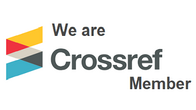Penerapan teori pengulangan (repetisi) dalam oral practicing (kelas percakapan) pemelajar BIPA di Australia
Abstract
Speaking skill is an important skill in learning a language. In learning Indonesian for Foreign Speakers (BIPA), speaking skill is considered difficult to teach because of students’ different language backgrounds. The use of repetition theory is proven to be applicable in Indonesian language learning activities in Australia. The author tries to conduct repetition theory to BIPA students at Mount Erin College. In this research, the method used is case study research with qualitative analysis. This paper aims to describe the use of repetition theory in conversation classes (oral practicing) to BIPA students and to describe the result of conversation between teacher and BIPA students simply. This research is hoped that it will provide benefit for BIPA teachers and BIPA activists in general.
Full Text:
PDF (Bahasa Indonesia)References
Ahmadian, M. J., & Tavakoli, M. (2011). The Effects of Simultaneous Use of Careful Online Planning and Task Repetition on Accuracy, Complexity, and Fluency in EFL Learners’ Oral Production. Language Teaching Research, 15(1), 35–59. https://doi.org/10.1177/1362168810383329
Alwasilah, A. C. (2011). Pokoknya kualitatif.
Bei, G. X. (2013). Effects of Immediate Repetition in L2 Speaking Tasks: A Focused Study. English Language Teaching, 6(1), 11–19. https://doi.org/10.5539/elt.v6n1p11
Bogdan, R. C., & Biklen, S. . (2006). Qualitative Research for Education: An Introduction to Theory and Methods. Allyn and Bacon.
Bygate, M., & Samuda, V. (2005). Integrative Planning Through the Use of Task Repetition. In Planning and task performance in a second language. John Benjamins.
Cameron, L. (2011). Teaching Languages to Young Learners. Cambridge University Press.
Cohen, L. V, & Cowen, E. J. (2006). Literacy for Children in an Information Age. Thompson Corporation.
Creswell, J. W. (1998). Qualitative Inquiry and Research Design: Choosing Among Five Traditions. SAGE Publication, Inc.
Emilia, E. (2000). Research Method in Education: Hasil pemikiran. Universitas Pendidikan Indonesia.
Fukuta, J. (2016). Effects of Task Repetition on Learners’ Attention Orientation in L2 Oral Production. In Language Teaching Research (Vol. 20, Issue 3). https://doi.org/10.1177/1362168815570142
Gass, S., Mackey, A., Ivares-Torres, M., & Femandez-Garcia, M.
(1999). The Effects of Task Repetition on Linguistic Output. Language Learning, 49(4), 549–581. https://doi.org/http://dx.doi.org/10.1111/0023-8333.00102
Kayi, H. (2006). Teaching Speaking: Activities to Promote Speaking in a Second Language. The Internet TESL Journal, 12, 1–6. http://www.iteslj.org
Levelt, W. J. M. (1989). Speaking: From Intention to Articulation. MIT Press.
Lynch, T., & Maclean, J. (2011). A Case of Exercising: Effects of Immediate Task Repetition on Learners’ Performance Pearson Education.
Muhammadpour, M., Hassanzadeh-Taleshi, M., & Salehi-Amiri, F. (2023). The Effects of Different Task Repetition Schedules on Oral Narratives of L2 Learners with High and Low Working Memory Capacity. Acta Psychologica, 236, 103933. https://doi.org/10.1016/j.actpsy.2023.103933
Nasaji, H., & Fotos, S. (2011). Teaching Grammar in Second Language Classroom. University Press.
Nunan, D. (1993). Research Method in Language Learning. Cambridge University Press.
Ryan, S. B. (2001). Overcoming Common Problems Related to Communicative Methodology. The Internet TESL Journal, 7(11). http://iteslj.org/Techniques/Ryan-Communicative.html
Sugiyono. (2015). Metode Penelitian Kuantitatif, Kualitatif, dan R&D. Alfabeta.
Susan, B. B. (2006). Patient Education. Jones and Bartlett Publisher.
Wolfe, P., & Nevills, P. (2004). On the Nature of reading: Building the Reading Brain. Corwin Press.
Yin, R. K. (2011). Qualitative Research from Start to Finish. Guilford Press.
Yoshimura, Y., & MacWhinney, B. (2007). The Effect of Oral Repetition on L2 Speech Fluency: An Experimental Tool and Language Tutor. Proceeding Speech and Language Technology in Education, 25–28.
DOI: https://doi.org/10.26499/jbipa.v5i1.6005
Refbacks
- There are currently no refbacks.
Publisher:
Badan Pengembangan dan Pembinaan Bahasa, Kementerian Pendidikan dan Kebudayaan Republik Indonesia
Address: Jl. Daksinapati Barat 4 No.11, RT.11/RW.14, Rawamangun, Kec. Pulo Gadung, Kota Jakarta Timur, Daerah Khusus Ibukota Jakarta 13220 Phone: +62 (021) 4896558

Jurnal Bahasa Indonesia bagi Penutur Asing (JBIPA) is licensed under a Creative Commons Attribution-NonCommercial 4.0 International License.
View My Stats -->





